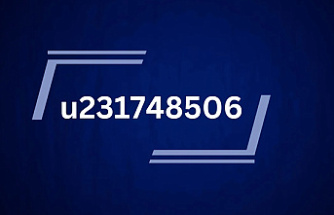Competition revives business. That's what those responsible at the American aircraft manufacturer Cessna thought when they became aware of the triumph of the Swiss turboprop Pilatus PC-12. The Confederates sold more than 1800 copies of the machine to date. This success therefore probably arouses desires beyond the Atlantic. The recipe of the Confederates: space for either up to ten passengers, cargo or a combination of both, a pressurized cabin and low operating costs due to only one propeller turbine make the PC-12 attractive for many applications. In addition, their ability to take off and land on grass, gravel or sand slopes in addition to asphalt. This allowed them to be unrivaled in the class of pressurized turbine singles so far.
Four years ago, the heads of Cessna therefore forged ambitious plans. A new single-engine turboprop called Denali should quickly open up new buyer groups. The 530 km / h low-wing aircraft with pressurized cabin would be suitable for unpaved runways and the transport of a maximum of ten passengers. And by pure chance, the machine looks almost identical to a PC-12. In the summer of 2021, however, disillusionment is now announced: The first flight of the Denali still did not take place after several delays, an approval is a long way off. Meanwhile, the Swiss competitor product continues to sell like sliced bread.
In mid-July, the Denali suddenly and surprisingly got a new manufacturer. Instead of Cessna, Beechcraft will act as the builder of the machine in the future. This procedure called badge engineering, long common practice in the automotive industry, is otherwise unusual in aviation. Although Airbus made the Bombardier CS-300 an Airbus A220 after the takeover of the Canadian company or Cessna made the Columbia 400 a Cessna Corvalis after the purchase of the former rival, it remains the exception.
The Denali should benefit from the good reputation
Since Cessna and Beechcraft are two traditional companies, also both belong to the Textron Group, the marketing maneuver may make sense. Cessna is famous for its piston engine classics of the 172 or 182 types, as well as for its twin-engine business jets of the Citation series. Beechcraft, on the other hand, is considered a "Mercedes" among general aviation aircraft. Piston engine classics from the manufacturer such as the Bonanza have been built continuously for more than an incredible 73 years since 1947, a design of the century. But Beechcraft is famous above all for its twin-engine with propeller turbine. The aircraft of the King Air family are legendary and have also been produced continuously in Wichita in the US state of Kansas since 1963 without a break. The Denali should therefore benefit from the good reputation of Beechcraft's twin-engine turboprop aircraft in the future and possibly also suggest a higher-quality image to the potential buyer.
Suitable for travel: The Denali transports up to ten people and can land on bad slopes. Photo by Olivier Tabary - stock.adobe.comBut how can the challenger even distinguish himself with the new machine? First Cessna and now Beechcraft are pinning their hopes on a brand new Catalyst propeller turbine from General Electric. It should swallow less kerosene than the Pratt & Whitney PT-6 turbine in the PC-12. Competitor General Electric also wants to score points with its new 1200 hp engine with lower maintenance costs compared to the Swiss machine.
The first flight is planned for this year after delays
This has not worked so far. The new Catalyst engine caused problems and could not be delivered. So instead of taking off for the first flight by the end of 2018 as planned, those responsible at Beechcraft now hope that the machine will go into the air for the first time this year. At the earliest in 2023, the aviation approval would be expected first by the American FAA and then the European EASA. Cessna actually had enough time to study the competition. 30 years ago, a PC-12 took off for the first time in Switzerland.
Date Of Update: 20 October 2021, 00:00











